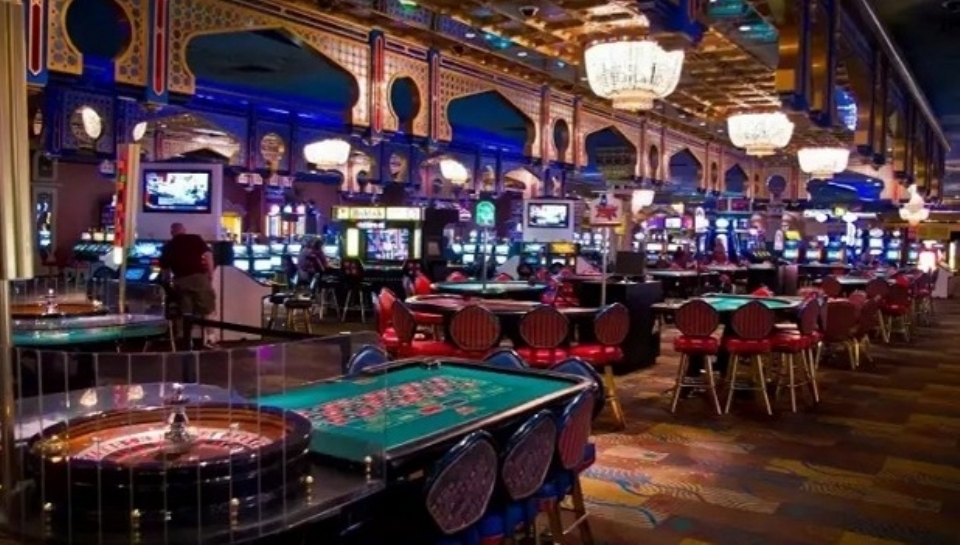Casino slot games have enthralled gamblers for decades, drawing them into a world of flashing lights, enticing sounds, and the thrill of chance. These devices, often found in colorful gaming venues, combine elements of luck and tactics, making them an attractive option for newcomers and seasoned gamblers too. But what is it that makes these games so appealing? The answer lies in the complex psychology at play as players engage with these vivid reels.
Whether it’s the wave of anticipation while waiting for the result of a spin or the euphoric feeling of a big win, the psychological response elicited by casino slots is considerable. The design of these games is meticulously crafted to stimulate the brain’s reward system, creating an event that can be both thrilling and compulsive. Understanding the psychological factors behind engaging with casino slots games can provide insight into why so many individuals are drawn to them and how they affect behavior and choices in the gaming setting.

Comprehending the Attraction of Slot Machines
Slot machines have a unique capability to enthrall players with their vibrant graphics and tempting sounds. The bright lights and captivating themes create an welcoming atmosphere that draws people in. Each turn of the reels promises the possibility of a huge win, fueling a sense of thrill and expectation that keeps players returning for more. E2BET VIP This sensuous experience plays a crucial role in the attraction to casino slots games, as it stimulates not only the brain but also the feelings.
A significant factor contributing to the allure of slot machines is the idea of prompt gratification. In contrast to other casino games that demand skill or strategy, slots offer immediate results with each spin. The quick pace of the game allows for prompt engagement, permitting players to experience the rush of winning or the letdown of losing in a matter of seconds. This instantaneous feedback loop can lead to a extremely habit-forming experience, as players chase the next potential payout while being entranced by the game’s continuous opportunity for adventure.
Additionally, the psychology of jackpot possibility cannot be ignored. The allure of hitting a fortune-altering payout keeps players returning, often outbalancing the odds against winning. Many players find themselves hoping about the potential of striking it rich, fueled by stories of players who have won large. This sense of optimism, together with the excitement of the game, creates an compelling lure that shapes the world of casino slots and makes them a popular among bettors.
The Role of Reinforcement in Gambling
The role of reinforcement plays a critical role in the psychology of engaging with casino slots games. When players interact with these machines, they face various forms of reinforcement that can affect their behavior. Positive reinforcement is particularly effective; winning, or even the possibility of winning, can create a rush that keeps players revisiting for more. The immediate feedback from the reels rotating, coupled with audio cues and graphics, further enhances this pleasurable experience, reinforcing the desire to continue playing.
The randomness of winning in casino slots games also ties into the concept of intermittent reinforcement. This psychological phenomenon occurs when rewards are given out at random intervals, making the expectation of a potential win more thrilling. Players may go for long periods without major wins but are drawn back by memories of past jackpots or the chance of future ones. This variability heightens excitement and keeps players waiting for that upcoming win, entrenching them deeper into the gambling cycle.
Finally, the communal element of playing casino slots games can amplify reinforcement. Numerous participants enjoy the shared environment of a casino, where they might observe others winning, share successes, or even sympathize over losses. This social reinforcement can create a shared experience that encourages repeated play. Players might feel motivated to continue not only for individual benefits but also to experience the camaraderie that comes with gambling, reinforcing their connection to the game.
The Impact of Casino Game Design on Player Behavior
Design of slot machines plays a vital role in influencing how players act and improving the overall gameplay experience. Features such as visuals, sound effects, and storylines are deliberately crafted to attract players and keep them involved. Vivid hues and inviting animations create a visually stimulating atmosphere that can lead to extended play times. Additionally, concepts ranging from ancient civilizations to modern trends appeal to various interests, making the games appealing to a broad audience. This targeted design promotes players to spend more hours and money into the gaming experience.
Additionally significant aspect of game design is the use of rewards systems and features like extra rounds or complimentary turns. These mechanics are designed to produce a feeling of excitement and anticipation, which can induce the production of pleasure hormones in the brain. This neurological response reinforces the behavior of playing by associating the game with pleasurable feelings. By providing attractive rewards, casinos motivate players to keep playing, which often leads to higher betting and longer gameplay. The mental thrill of potentially hitting a big win or unlocking a special feature keeps players coming back for more.
Lastly, the community aspects integrated into slot games can also affect player behavior. Many contemporary slots feature capabilities that allow players to interact with others through leaderboards or collective goals. This social aspect can enhance the overall experience, as players may feel a sense of belonging or rivalry that motivates them to participate more fully. The mix of individual excitement and group dynamics creates a lively environment that not only amuses but also promotes consistent gameplay, further illustrating how deliberate game design can significantly impact gamer actions.